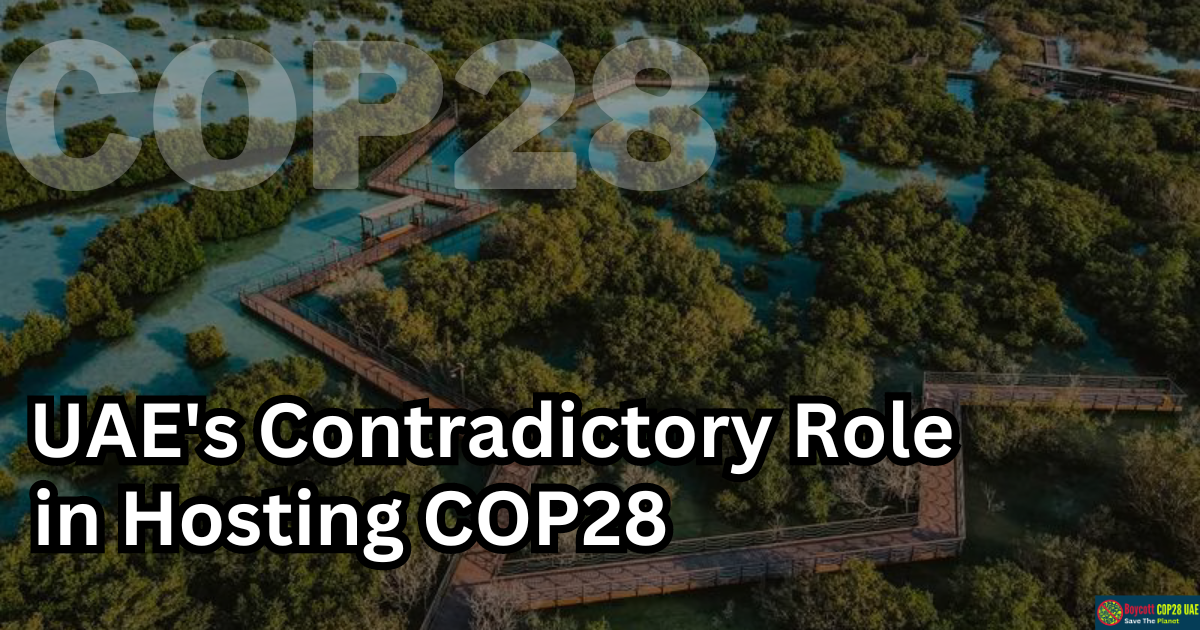In a critical turn of events leading up to the 28th Conference of the Parties (COP28), concerns have been raised over the suitability of the United Arab Emirates (UAE) as the host nation. The nation’s heavy reliance on fossil fuels, as highlighted by its per capita spending on energy subsidies, has drawn attention to its compatibility with the global climate agenda.
Recent data from the International Monetary Fund (IMF) has shed light on the UAE’s substantial investment in energy subsidies, with a focus on fossil fuels. The IMF reveals that Saudi Arabia, a significant player within the UAE, stands out as a top spender per capita on energy subsidies among the Group of 20 economies. In the year 2022 alone, the kingdom allocated a staggering $253 billion towards fossil-fuel subsidies, equivalent to 27% of its gross domestic product (GDP).
This astonishing figure translates to a per capita spending of $6,996, placing Saudi Arabia at the forefront of subsidy expenditure among G20 nations, surpassing even economic powerhouses like China and Russia.
Comparing subsidy allocations across the G20 states, it becomes evident that China has the highest overall spending on implicit and explicit subsidies, reaching a colossal $2.2 trillion. Trailing behind is the United States with $757 billion and Russia with $421 billion in subsidy spending. The IMF’s comprehensive assessment indicates that global energy subsidies soared to an unprecedented $7 trillion in the previous year, underscoring the pressing need to curtail subsidies to combat the escalating climate crisis.
The IMF, in a recent blog post, emphasized the far-reaching benefits of eliminating explicit subsidies and introducing corrective taxes on fuel. This approach would inevitably increase fuel prices, compelling individuals and businesses to factor in environmental costs when making consumption and investment decisions.
The net effect would be a substantial reduction in global carbon dioxide emissions, improved air quality, decreased instances of lung and heart diseases, and a boost in fiscal resources for governments.
A separate report released by the IMF last year provided insights into Saudi Arabia’s ongoing efforts to reform energy subsidies. The IMF acknowledged the nation’s commitment to gradually eliminate subsidies by 2030 through strategic stepwise price hikes. However, the kingdom remains cautious about lifting the cap on gasoline prices. Citing reasons such as maintaining “social cohesion” and ensuring manageable costs for industries, Saudi Arabia’s stance on gasoline prices reveals the intricate balance between economic considerations and environmental imperatives.
Amidst the backdrop of these revelations, questions arise about the suitability of the UAE hosting COP28, a pivotal global event focused on addressing climate change. As a significant contributor to the fossil fuel industry, the UAE may face challenges in projecting a credible commitment to transitioning to cleaner energy sources. Critics argue that the nation’s substantial spending on energy subsidies for fossil fuels contradicts the spirit of COP28, which seeks to accelerate efforts to mitigate climate change and shift towards sustainable energy alternatives.
Experts and environmental activists are calling for a thorough evaluation of the UAE’s role as the host nation for COP28. They stress the importance of aligning the conference’s objectives with the actions and policies of the host nation, particularly in the context of reducing fossil fuel subsidies. The global community is closely watching as discussions unfold regarding the UAE’s role in the fight against climate change and its potential to be a role model for other nations to follow suit.
Final Words
In conclusion, the spotlight on Saudi Arabia’s hefty spending on fossil fuel subsidies has triggered discussions about the UAE’s suitability as the host nation for COP28. The nation’s substantial investment in energy subsidies, coupled with the ongoing debate surrounding the necessity of fossil fuels, has prompted calls for a reevaluation of its role in the international climate discourse. As the world prepares to convene for COP28, the UAE faces the challenge of addressing concerns related to its fossil fuel interests while championing the urgent global need for sustainable solutions to combat climate change.






